Is Cracking Joints Bad for You? Let’s Clear It Up
Crack. Pop. Snap.
Whether it’s your knuckles, neck, or knees—those little noises from your joints can be oddly satisfying… or downright worrying.
You’ve probably heard someone say, “Don’t crack your joints—it’ll give you arthritis!”
But is that true? Or just one of those myths that gets passed down over the years?
Let’s take a look at what’s really going on—and whether cracking is something to worry about.
💥 First Off: What Is That Cracking Sound?
That sound you hear when you crack a joint is usually gas bubbles popping inside the joint fluid. It’s called cavitation, and it happens when you stretch or shift a joint quickly.
It’s a bit like opening a bottle of soda—pressure changes inside the joint release gas, and pop!—you get that sound.
It’s not bones grinding together. And it’s not your joint wearing out. In most cases, it’s harmless.
🚫 Myth Busted: Cracking Doesn’t Cause Arthritis
The idea that cracking your joints leads to arthritis is a common myth—but it’s not backed by research.
In fact, there’s no strong evidence linking joint cracking with joint damage or arthritis. One famous doctor even cracked the knuckles on one hand for 60 years (and left the other hand alone)... and both hands were just fine.
So if you’re a knuckle-cracker? Don’t stress. It’s not the villain some people think it is.
🟡 When Cracking Might Be a Sign of Something Else
Now, just because the sound itself isn’t dangerous doesn’t mean it should always be ignored.
Here’s when joint noises might need a closer look:
There’s pain with the crack
The joint feels unstable or gives way
You lose range of motion (can’t move like you used to)
There’s swelling or warmth around the joint
These signs can point to something more serious—like a tendon issue, joint irritation, or wear and tear in the cartilage. That’s where a physio can help you figure out what’s going on and what to do next.
✅ Safe Cracking vs. Forced Cracking
There’s a difference between joints naturally clicking or releasing with movement—and trying to force a crack over and over again.
Gentle, natural movement? Totally fine.
Forcing a joint to crack repeatedly? Not a great habit.
Over time, constantly pulling on your joints could irritate the surrounding tissues or make them feel loose, especially if it becomes something you do out of habit or stress.
👂 What About When Joints Crack During Exercise?
It’s pretty common to hear little pops or clicks during stretching or strength exercises.
In most cases, that’s just your body adjusting—especially if:
You’ve been sitting or inactive for a while
Your muscles are tight
You’re moving through a new range of motion
As long as there’s no pain, these noises are usually nothing to worry about. If something doesn’t feel right though, it’s worth getting checked out.
🧠 Final Word: Listen to Your Body
Cracking joints? Usually fine.
Cracking joints with pain, swelling, or weakness? Time to get some help.
At Take Control Active Rehab in Oatley, we help people understand what’s happening inside their body and teach them how to move better—without fear or confusion.
So if something’s popping, clicking, or cracking and you’re not sure why—we’ll take a look and guide you with real answers, not myths.



